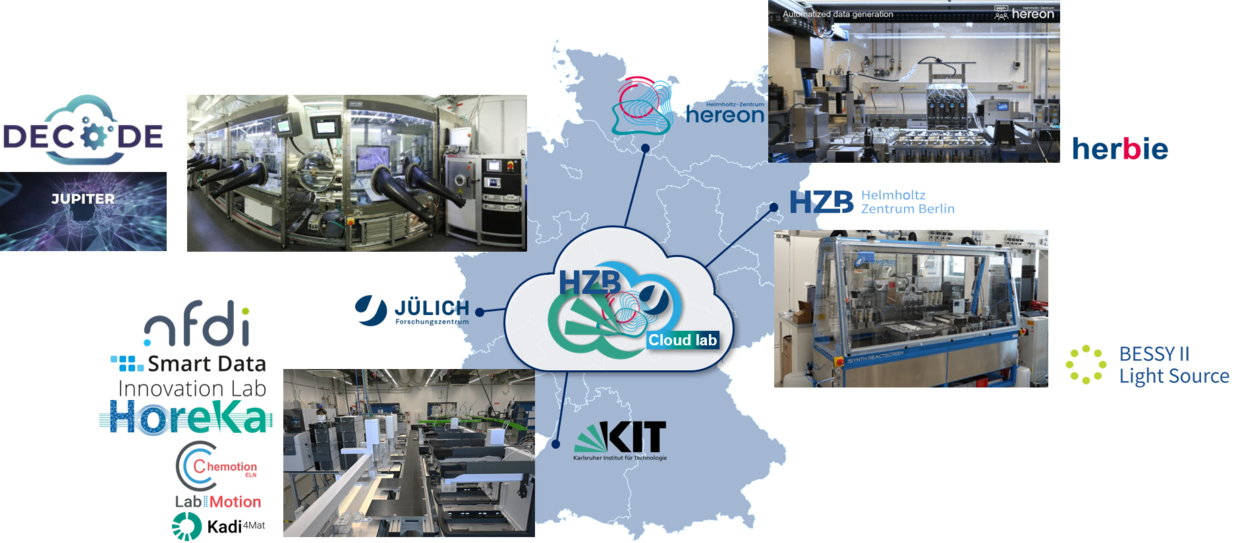Welcome to HELMA
The HELMHOLTZ Acceleration Alliance (HELMA) will become Germany's leading consortium for autonomous AI/ML-based research based on Self-Driving Labs (SDLs) with the greatest activity in the autonomous innovation development of health technologies through biomedical engineering and the digital acceleration of materials system discovery addressing communication technology, electronics, energy storage/conversion, and catalysis. Together with academic, clinical and industrial partners, HELMA will accelerate the path from ideas to data and innovation by redefining labs in smart data centers. Redefining the labs of the future with seamless automation and innovative AI/ML solutions and enabling remote infrastructure access via a cloud lab will unlock transformative increase of discoveries, scaling scientific impact to unprecedented levels without escalating resource use. This framework is set to drive significant change, transition research into the digital age, moving away from traditional, manual approaches to innovation development, while minimizing the environmental impact of large-scale research activities.

Why SDLs? Accelerating sustainable materials research for almost all industrial processes can only be achieved through the unique combination of automation, machine learning tools, digital twins and artificial intelligence (AI).
Why in Germany? Germany as a research location is predestined to take on a leading role in Europe and worldwide because all the necessary expertise and key players from academia and industry come together synergistically here. In accordance to the European Advanced Materials Initiative AMi2030, innovative advanced materials solutions are essential to strengthening Germany's resilience and sustainability. To meet the growing market demand—driven by an urgent need for a safe, healthy and sustainable society—highly sophisticated Advanced Materials must be developed at an unprecedented pace. Overcoming major challenges in the design, development, and scale-up of these materials, as well as in related production and processing technologies, is crucial. Addressing these challenges requires a strategic focus on novel AI/ML based methods to explore the so far unknown materials space.

